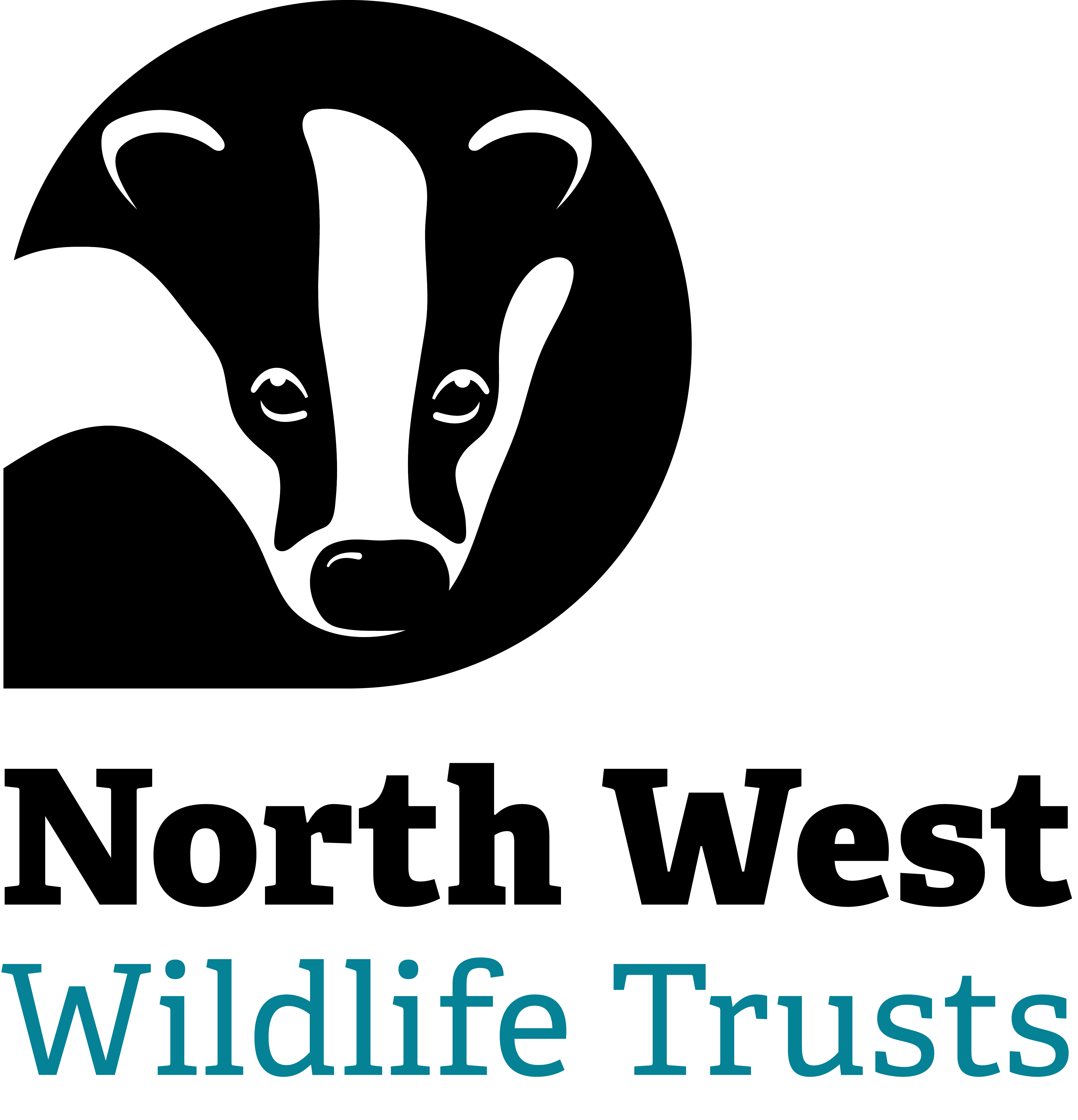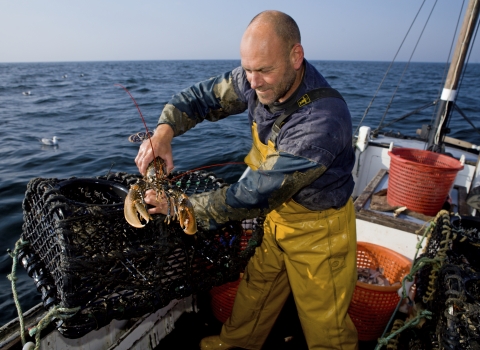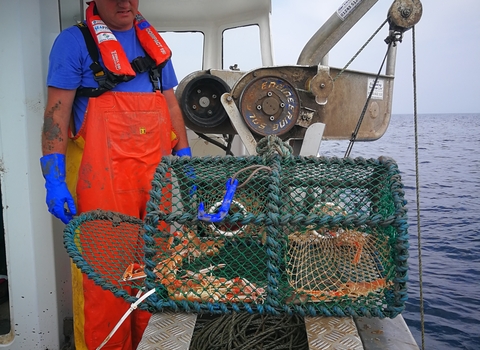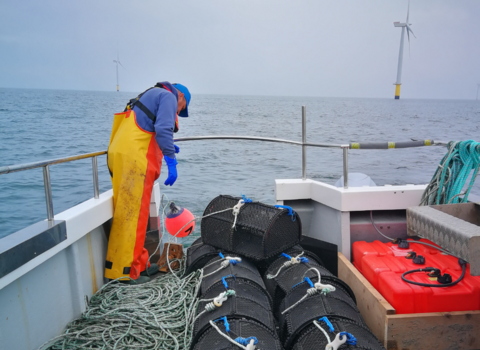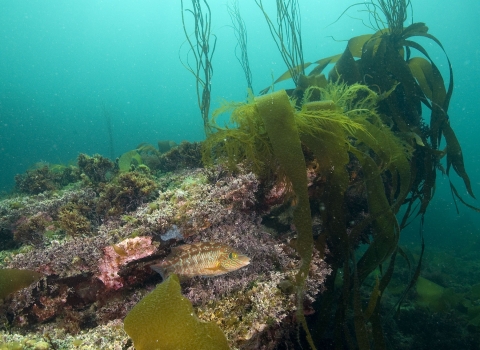Restoring our seas and fish stocks
Unsustainable fishing can destroy marine habitats and drive species to extinction. The Wildlife Trusts work towards a sustainable fishing industry that protects the future of marine life as well as our food supply. If we fish sustainably, fish populations will thrive and reach their maximum potential. Ecosystem-based fisheries and marine conservation management need to be integrated, and the impacts of fishing need to be assessed at ecosystem level to achieve this. We also need an improved market for local, sustainably caught fish. This means having good trade conditions for fish and fish products as well as support and promotion of low impact, sustainable fishing methods.
Healthy ecosystems - healthy fisheries
Despite the progress of recent years, commercial fishing remains a threat to the health of our seas. Whether through overfishing, the disruption of marine food webs or damage to seabed habitats, fishing activities continue to put pressure on marine ecosystems. Their negative effects need to be managed if we are to reverse decades of decline and rebuild healthy and productive seas. This is key to helping fisheries to achieve long-term sustainability. A profitable industry can only be based on plentiful fish stocks, which, in turn, are part of thriving marine ecosystems. We share a common cause with the fishing industry.
What we are doing
As part of our marine policy programme we work closely with fisherman and fisheries regulators to improve the sustainability of fisheries across the North West and throughout the Irish Sea.
Sieving mussels on a mussel survey
North Western Inshore Fisheries & Conservation Authority
To survey and help with the creation of management plans for Marine Protected Areas, as well as inputting into the development of byelaws.
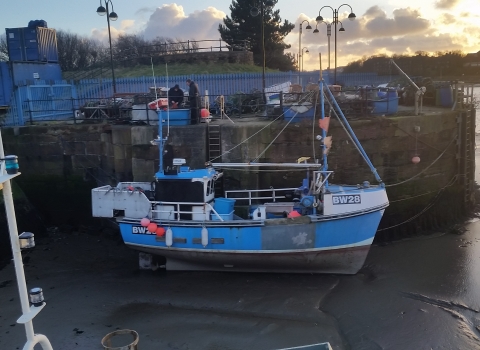
Fishing boat in the docks
Fishermen
To develop, trial and champion low impact, profitable fisheries where marine life also thrives.
Working to improve our national fisheries legislation
For decades fishing in UK waters was guided by the Common Fisheries Policy, the mechanism and set of rules through which European fishing fleets and fish stocks are managed. However, after Brexit, the UK Fisheries Act was passed, granting the UK more control over fishing, fisheries and aquaculture in UK seas.
The Fisheries Bill includes a commitment to introduce fisheries management plans for fish populations. These would take account of the whole marine environment, which is significant as, after all, fish populations do not exist in isolation, and both depend upon and impact the wider health of our seas.
These management plans could play an important role in the improved management of our seas. However, we are concerned about some weaknesses in the language of the Bill which would allow authorities to get around fisheries management plans due to economic, social, or other factors. Short term considerations could blunt or even override ambitions for long-term sustainable management as a result.
Three examples of our work
Offshore Marine Protected Areas – conservation not compromise
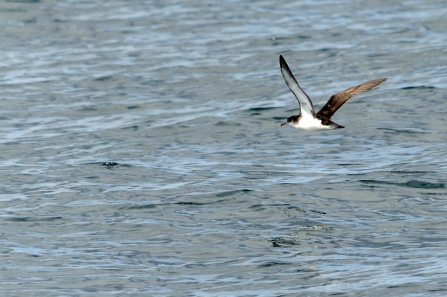
We respond to consultations about the management of fisheries in offshore Marine Protected Areas. Photo: Manx shearwater © Amy Lewis
It is vital that Marine Protected Areas (MPAs) are well-managed, with activities that are likely to cause damage to protected habitats or species excluded from these special areas. Under current rules, fishing activities in offshore areas (beyond 12 nm) are controlled through the Common Fisheries Policy. If the UK wants to impose controls on fisheries to protect offshore MPAs it must seek the agreement of all Member States whose vessels regularly fish in those areas. In many offshore sites this is leading to compromise rather than conservation, with areas of habitat being left open to damaging fishing activities fishing to placate fishing interests.
This must change. So, we are working hard, talking to Government to persuade them that after the UK leaves the EU that offshore MPAs will be fully protected. First, this means that that any non-UK vessels must abide by the same rule as UK boats. Second, while there will be discussion with other countries the UK government must have the final say and this must mean that all damaging activities are excluded from offshore MPAs.
Marine Protected Areas – protection not experiments
We have been working with local fishermen and the NWIFCA to ensure that the honeycomb worm reef within Morecambe Bay European Marine Site continues to be protected from potentially damaging fishing activity.
Much hard work has been carried out over the past few years to make sure that all Marine Protected Areas are well-managed and that damaging activities are excluded. Because of pressure from The Wildlife Trusts and other environmental NGOs, the Government finally admitted that this must include management of fishing activities. Now a programme to assess and manage the impact of fishing on all MPAs is being implemented.
What happens if there is doubt over the impacts of fishing activity? We believe that in the case of doubt, a precautionary stance should be taken, and fishing activity excluded. However, in many cases where there are different views over the damage that fishing may cause, fishing can continue under a programme of ‘adaptive risk management’. While we agree that experiments do need to be carried out to gather data, we feel that protected areas are not suitable areas for this work to be carried out.
Fisheries – planning for a sustainable future
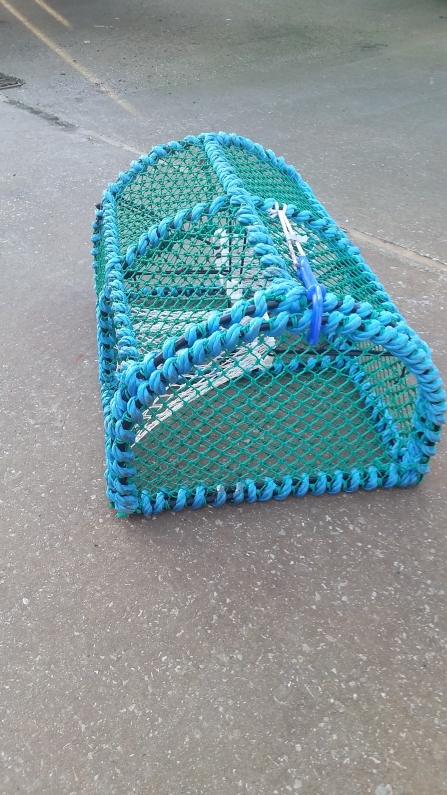
We have been working with local fishermen to trial creeling for Neohrops (aka scampi or langousitine) a fishing method that could maximise economic gain while minimising environmental impacts.
One thing missing from current fisheries management is a proactive plan for development of the activity, and for its integration with marine conservation and other activities at sea.
The Marine Management Organisation is responsible for preparing marine plans in England. While these plans have made a good start, they do not go far enough. Aside from not taking a truly spatial and forward-thinking approach, they don’t adequately incorporate all the activities in the sea. Most notably, fisheries management is dealt with separately. We believe that a new approach, based on the development of Regional Sea Plans will help us meet the needs of people and wildlife and live within environmental limits.
Regional Sea Plans will help deliver ecosystem-based management. They will help deliver a marine environment that can support the fishing industry into the future. With a network of MPAs as their foundation, they should have social, economic and environmental goals, protect important fish habitats and identify ‘go-fish’ areas. Fishing methods which maximise social and economic gain while minimising environmental impacts (such as creeling for Nephrops, rather than trawling) should be prioritised.
